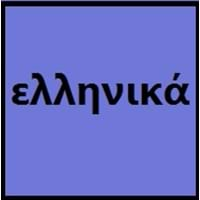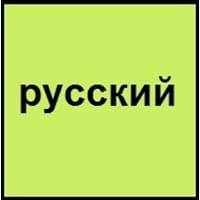Countries
Cyprus, European Union, Greece
Belarus, Kazakhstan, Kyrgyzstan, Tajikistan
National Language
Albania, Cyprus, Egypt, France, Greece, Italy, Romania, Turkey, Ukraine
Russia
Second Language
Roman Empire
Afganistan
Speaking Continents
Asia, Europe
Asia, Europe
Minority Language
Albania, Armenia, Australia, Hungary, Italy, Romania, Turkey, Ukraine
Armenia, Azerbaijan, Bulgaria, Estonia, Finland, Georgia, Germany, Greece, Israel, Jordan, Latvia, Lithuania, Mongolia, Poland, Serbia, Tajikistan, Turkey, Turkmenistan, Ukraine, Uzbekistan
Regulated By
Center for the Greek language (Κέντρον Ελληνικής Γλώσσας)
Russian Academy, Russian Language Institute of the Russian Academy of Sciences
Interesting Facts
- Greek is the longest documented language of all the Indo-European Langauges.
- The official language of education in the Roman Empire was Greek.
- In Russian language, the words are not pronounced as they are written.
- In Russian language, there are only 200,000 words out of which only few words are used and due to this many words have more than one meaning.
Similar To
Armenian
Ukrainian and Belarusian Languages
Derived From
Latin
Proto-Slavic Vocabulary
Alphabets in
Greek-Alphabets.jpg#200
Russian-Alphabets.jpg#200
Scripts
Arabic, Latin
Cyrillic
Writing Direction
Left-To-Right, Horizontal
Left-To-Right, Horizontal
Hello
γεια σας (geia sas)
здравствуйте(zdravstvuyte)
Thank You
ευχαριστώ (ef̱charistó̱)
спасибо(spasibo)
How Are You?
πώς είσαι (pó̱s eísai)
Как дела? (Kak dela?)
Good Night
Καληνυχτα (Kali̱nychta)
Спокойной Ночи(Spokoynoy Nochi)
Good Evening
καλησπέρα (kali̱spéra)
Добрый Вечер(Dobryy Vecher)
Good Afternoon
Καλὸ ἀπόγευμα (Kaló apóyevma)
Добрый День(Dobryy Den')
Good Morning
καλημέρα (kali̱méra)
Доброе Утро(Dobroye Utro)
Please
παρακαλώ (parakaló̱)
пожалуйста(pozhaluysta)
Sorry
συγνώμη (sygnó̱mi̱)
Извините(Izvinite)
Bye
αντίο (antío)
до свидания(do svidaniya)
I Love You
Σε αγαπώ (Se agapó̱)
Я тебя люблю(YA tebya lyublyu)
Excuse Me
Με συγχωρείτε! (Me synhoríte)
извините(izvinite)
Dialect 1
Cappadocian Greek
Doukhobor Russian
Where They Speak
Greece
Alberta, British Columbia, Canada, Saskatchewan
Where They Speak
Italy
Olonets
How Many People Speak
Not Available
Dialect 3
Mariupol
Novgorod
Where They Speak
Ukraine
Novgorod
Second Language Speakers
Not Available
Native Name
ελληνικά
Русский
Alternative Names
Ellinika, Graecae, Grec, Greco, Neo-Hellenic, Romaic
Russki
French Name
grec moderne (après 1453)
russe
German Name
Neugriechisch
Russisch
Pronunciation
[eliniˈka]
[ˈruskʲɪj jɪˈzɨk]
Ethnicity
Greeks or Hellenes
Russians
Language Family
Indo-European Family
Indo-European Family, Slavic Family
Branch
Not Available
Eastern
Early Forms
Proto-Greek, Mycenaean Greek, Ancient Greek, Koine Greek and Medieval Greek
Old East Slavic
Standard Forms
Modern Greek
Standard Russian
Signed Forms
Greek Sign Language
Signed Russian
Scope
Individual
Individual
ISO 639 6
ells
Not Available
Glottocode
gree1276
russ1263
Linguasphere
56-AAA-a
53-AAA-ea
Language Type
Living
Living
Language Linguistic Typology
Subject-Verb-Object
Subject-Verb-Object
Language Morphological Typology
Fusional, Synthetic
Fusional, Synthetic
Greek and Russian Greetings
People around the world use different languages to interact with each other. Even if we cannot communicate fluently in any language, it will always be beneficial to know about some of the common greetings or phrases from that language. This is where Greek and Russian greetings helps you to understand basic phrases in Greek and Russian language. Greek word for "Hello" is γεια σας (geia sas) or Russian word for "Thank You" is спасибо(spasibo). Find more of such common Greek Greetings and Russian Greetings. These greetings will help you to be more confident when conversing with natives that speak these languages.
Greek vs Russian Difficulty
The Greek vs Russian difficulty level basically depends on the number of Greek Alphabets and Russian Alphabets. Also the number of vowels and consonants in the language plays an important role in deciding the difficulty level of that language. The important points to be considered when we compare Greek and Russian are the origin, speaking countries, language family, different greetings, speaking population of these languages. Want to know in Greek and Russian, which language is harder to learn? Time required to learn Greek is 44 weeks while to learn Russian time required is 44 weeks.





